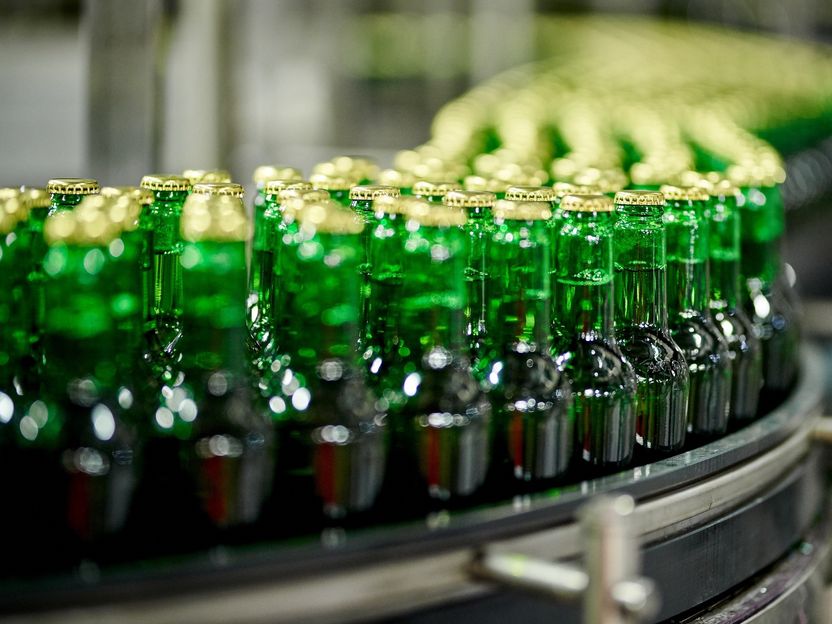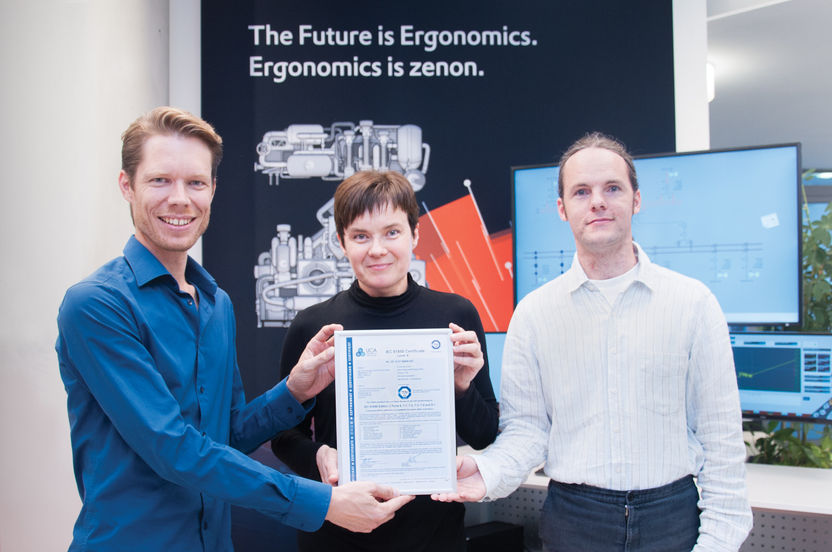AB InBev develops world's lightest beer bottle
Weighing only 150 grams: the unique glass innovation significantly reduces CO2 emissions
It is the lightest longneck beer bottle in the world. Anheuser-Busch InBev has developed it for commercial production. The trick: If the innovation were used in glass production for AB InBev's brands in Europe for a year, CO2 emissions could be significantly reduced. As significantly as taking 62,000 cars off the road each year.

Lightest beer bottle in the world
Anheuser-Busch InBev
The world's leading beer brewer and owner of brands such as Budweiser, Stella Artois, Corona, Beck's and Leffe has managed to reduce the weight of its standard longneck beer bottle from 180 to 150 grams, cutting its CO2 emissions per bottle by 17 percent. With packaging accounting for an average of 50 per cent of a product's carbon footprint, such innovations are an important part of AB InBev's sustainability targets, which call for a 25 per cent reduction in CO2 emissions across the value chain by 2025.
The new lightweight bottle is a milestone in the company's history. The world first was developed at the brewery's Global Innovation and Technology R&D Center, or GITEC, in Leuven, Belgium. There, various innovative technologies were combined to deliver a more sustainable bottle while maintaining a safe packaging that ensures beer quality.
Environmental and technical breakthrough
"Reducing the weight of our bottles has been a priority for AB InBev for many years. This new lighter bottle is a significant environmental and technological breakthrough that allows us to reduce the carbon footprint of the glass bottle," said Frederik De Graaf, Global Director, Packaging Technology Development at AB InBev. "This success is the result of intensive collaboration with our external glass partners, who shared their knowledge and worked together on new glass coatings, new glass mold coatings and state-of-the-art processing to strengthen the glass."
A project with challenges. "Quality and safety are non-negotiable. All new packaging innovations undergo extensive testing before they can be launched," says De Graaf, adding, "In reducing the weight of the bottle, we faced strength challenges. This is because beer is, of course, a carbonated beverage and pressure can build up inside the bottle as the glass expands under certain thermal conditions. We also had to be mindful of the speed of our bottling equipment, which exerts high impact forces on the bottles. Ultimately, a combination of state-of-the-art equipment, trained professionals and process improvements helped us develop this innovation."
AB InBev is now looking at how to initially introduce the new bottle in Europe as a single-use bottle. Reusable bottles, which have a smaller environmental footprint because they can be reused several times, are the next challenge for the GITEC team of scientists. It will be to further develop the technologies for lightweighting these bottles, which must survive many cycles. AB InBev has committed to offering 100 percent of its products in packaging that is reusable or made of a majority of recycled material by 2025.
Note: This article has been translated using a computer system without human intervention. LUMITOS offers these automatic translations to present a wider range of current news. Since this article has been translated with automatic translation, it is possible that it contains errors in vocabulary, syntax or grammar. The original article in German can be found here.
Most read news
Organizations
Other news from the department business & finance

Get the food & beverage industry in your inbox
By submitting this form you agree that LUMITOS AG will send you the newsletter(s) selected above by email. Your data will not be passed on to third parties. Your data will be stored and processed in accordance with our data protection regulations. LUMITOS may contact you by email for the purpose of advertising or market and opinion surveys. You can revoke your consent at any time without giving reasons to LUMITOS AG, Ernst-Augustin-Str. 2, 12489 Berlin, Germany or by e-mail at revoke@lumitos.com with effect for the future. In addition, each email contains a link to unsubscribe from the corresponding newsletter.




























































